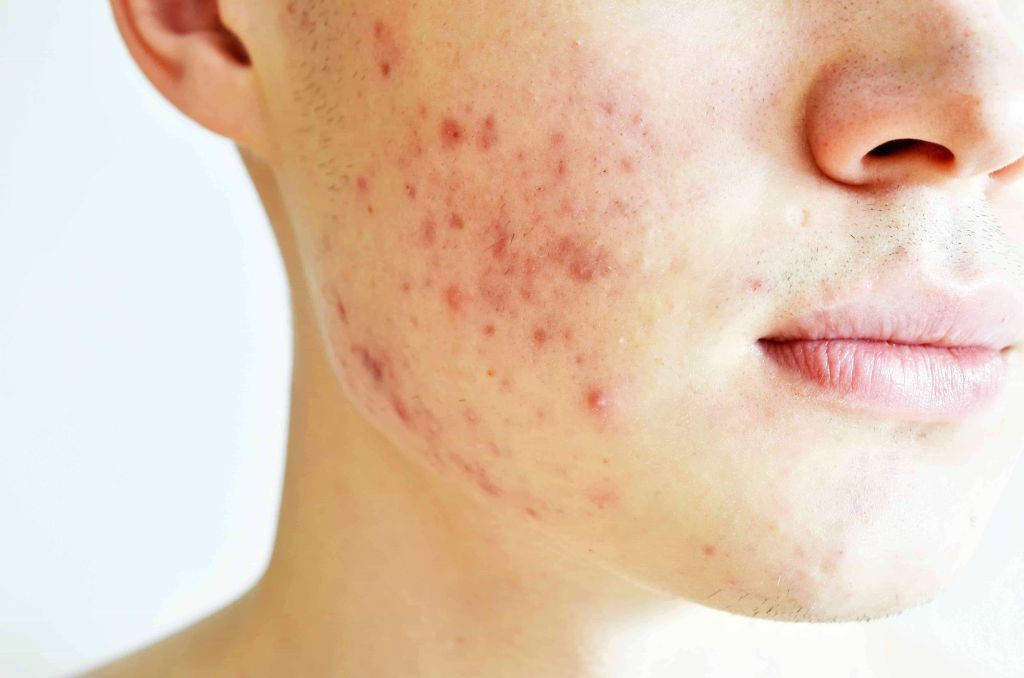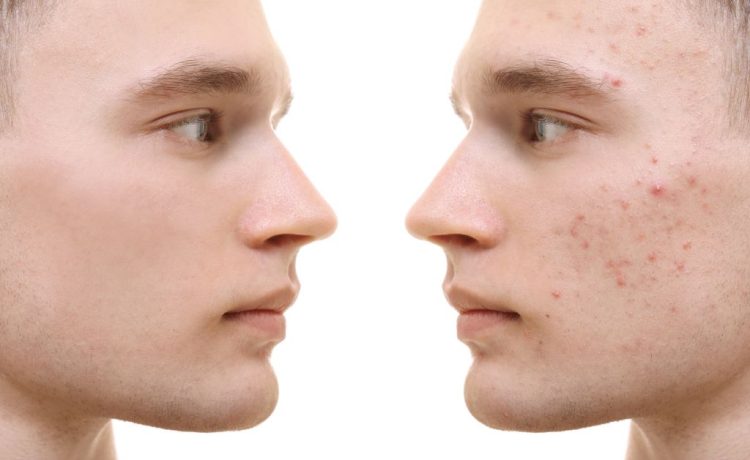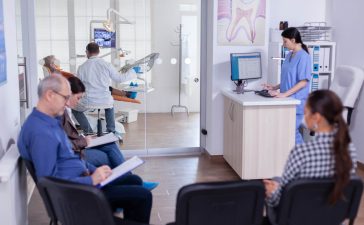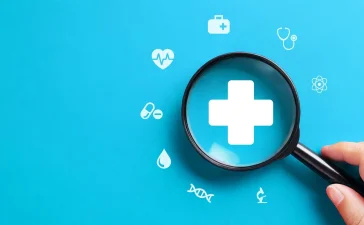Acne affects millions of people worldwide, no matter their age or gender. A common misconception is that only teenagers have acne skin; however, this is entirely false. Although teenagers have more acne since their hormones are slightly imbalanced at that age, many 20- 35-year-olds also experience this issue.
If you are passionate about skincare and your skin health, it’s crucial to understand how your diet can impact your skin.
In today’s blog, we’re going to explore acne in detail, including common symptoms, causes, and how to get rid of it. Continue reading to learn about the best vitamins and minerals for acne, which will give you relief from this annoying condition!
What are the Different Types of Acne?
What are the Symptoms of Acne?
In order to get rid of your acne, it’s essential to know what is causing it in the first place. So, let’s start with the most mild form of acne – blackheads and whiteheads. These non-inflammatory acne look like small, dark, or white bumps on your skin. They appear when your pores get clogged. They are usually on the surface, yet some can be deep.
Problematic acne is the one that goes beyond the surface, the deep ones. Papules are one of those. Inflamed or infected hair follicles cause these small, red bumps. They are painful to touch and, over time, can evolve into pustules. Pustules are red at the base with a white center filled with pus. It’s important not to try to squeeze them by yourself since they can leave a scar. It is better to schedule a treatment with a professional who will manage them properly.
Lastly, there are nodules and cysts, which have severe symptoms. Both are very deep beyond the skin’s surface. Nodules are pretty painful and hard to the touch, while cysts are softer and filled with pus.
What Causes Acne?
Overproduction of sebum is the leading cause of acne. Sebum is an oily substance which is produced by sebaceous glands. The mix of sebum and dead skin cells can clog your pores, leading to acne. Menstruation, stress, or hormonal changes usually trigger increased sebum production.
Another significant factor is bacterial growth on your skin. A typical bacterium called propionibacterium acnes, feeds on sebum and can proliferate in clogged pores. Clogged pores leads to inflammation and pimples. This can worsen existing acne, but fortunately, it is easily manageable with topical or oral antibiotics.
Furthermore, genetic predisposition is also a factor in acne causes. Some people are more prone to acne due to genetics. Furthermore, genetic predisposition is also a factor in acne causes. Some people are more prone to acne due to genetics. Finally, factors like pollution, humidity, sun, and diet also impact acne flare-ups.
Moving on, let’s discover the best supplements for acne.

The Best Minerals and Vitamins for Acne
Vitamins and minerals are among the most effective ways to treat acne. For example, Vitamin A is very popular in acne management because it can reduce sebum production. It also regulates skin cell turnover, helping to prevent clogged pores. If you are dealing with acne, incorporate foods rich in Vitamin A, such as sweet potatoes and carrots. Supplements like retinoids can also offer significant benefits for acne-prone skin.
Besides Vitamin A, Vitamin E also has benefits that will help you address this issue. This vitamin can help reduce inflammation and support skin healing. Additionally, it reduces scarring. You can find a lot of Vitamin E in foods like nuts, seeds, and leafy greens.
Minerals, on the other hand, can reduce bacterial growth on your skin. For example, Zinc can reduce inflammation and decrease acne severity. Look for overnight masks or creams with zinc.
Is Selenium Good for Acne?
Selenium has significant antioxidant properties, and it works with Vitamin E to protect the skin cells from inflammation. It can also reduce acne severity. It improves skin health by improving the immune system’s response to inflammation. Good sources of selenium are found in fish, nuts, and whole grains, so adding it to your diet is easy. Furthermore, research shows that the continuous intake of this mineral has amazing benefits for treating acne symptoms.
However, you need to be cautious when consuming selenium, since an excessive amount can lead to toxicity. We recommend consulting a healthcare provider about the doses of this supplement.
Does Magnesium Help with Acne?
Magnesium is doing wonders for your skin, particularly, reducing inflammation. Its main role in acne treatment is connected to its amazing ability to balance stress hormones. As mentioned earlier, stress can be one of the main triggers of acne flare-ups. In addition, magnesium keeps your skin hydrated and less prone to breakouts. Spinach, black beans, and almonds contain a good source of this mineral, so consider adding them to your diet. You can also use supplementation if you need an extra boost!
What Vitamins Cause Acne?
While vitamins are usually good for your health and skin, some can induce acne in certain people. Be aware of your intake of Vitamin B12 and Iodine.
Vitamin B12 can provoke acne outbreaks and can also increase acne-causing bacteria.
An excessive amount of iodine can cause acne in some individuals, mainly due to its impact on hormone balance and skin inflammation.
Acne Prevention
To prevent acne, maintain a consistent skincare routine specific to your skin type. Consult a dermatologist to determine your skin type and which products to use. But remember, hydration is crucial. Non-comedogenic moisturizers can help keep your skin hydrated.
Diet is also very important. Avoid sugary drinks, processed foods, and instead opt for fruits, vegetables and whole foods. Also, drink plenty of water. Water will help flush out the toxins.
Lastly, manage stress. Meditation or yoga are great methods for managing stress levels. Regular exercise is also recommended to keep stress hormones in check. In addition, try to get as much sleep as you can. They call it “beauty sleep” for a reason!
Conclusion
We know acne can be really frustrating, however, finding the cause and treating it naturally with vitamins and minerals offers hope. From Vitamin A to magnesium, we hope you will find relief in one of these nutrients on the list! By incorporating these strategies for acne prevention, you will be on a path to clearer skin!





